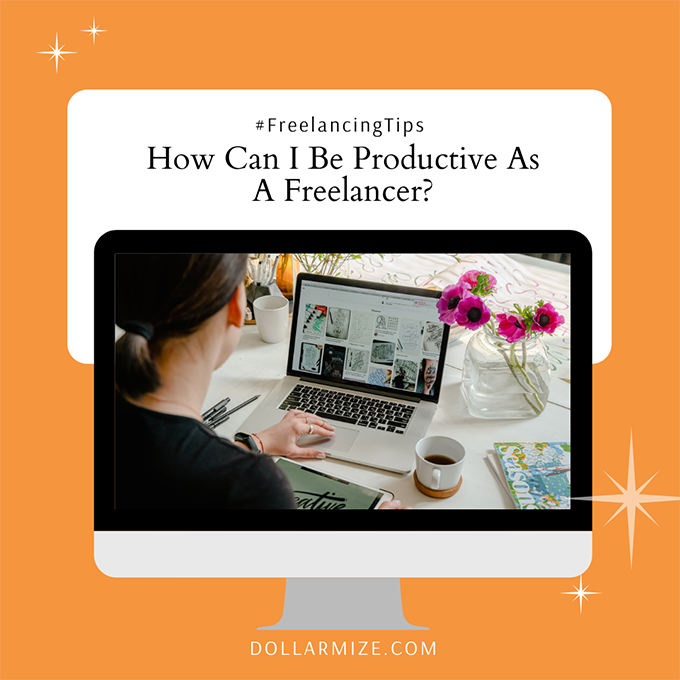With the dawn of a new generation is a new era of work. One that‘s oriented towards managing your work schedule and being more project-based. This is why more and more people became interested in freelancing. But like any other type of work, there are advantages and disadvantages. In this article, we will discuss the major pros and cons of freelancing and how they affect future careers.
In the modern industry, freelancing has become a legitimate way of advancing one’s career. It has become popular among young people even if it deviates from the traditional 9 to 5 everyday office work in a cubicle. They are equipped with newer, more radical values and beliefs. And this extends to them reclaiming their independence by doing freelance work and surviving in a gig economy.
However freeing as it may sound, a gig economy can have disadvantages. Especially if you’re caught in a time when it’s not the norm, freelancing cuts both ways and not everyone is doing it because its disadvantages can cause significant losses. And so today, let’s dive into the list of the major pros and cons of freelancing.

Pros
Working freelance has endless benefits, especially for people who can’t imagine themselves succumbing to a system they can’t tolerate. People always stress independence, flexibility, creativity, and the endless pursuit of various passion projects. Freelancing also allows one to maintain an excellent work-life balance and avoid burnout. Below are ten major reasons why you should consider freelancing.
Be Your Own Boss
How many times have you heard this before? Cliché as it may sound, it’s the most prominent reason many people would rather freelance. Not everyone is capable of tolerating and surviving the grueling 9 to 5. A lot of company work can be done without the tedious and bureaucratic process and skip the endless paperwork.
Freelancers are independent contractors that can set their hours depending on when they feel the most productive. The absence of a company or a traditional employer does not direct the means and methods by which they work. The payment is also simple and direct: receive a project, work on it, and get paid for it.
Flexible Work
Among all the pros and cons of freelancing, this is one of the best pros with no disadvantages. Imagine working on your own time and your office could be anywhere you like. Freelancing allows you to spend time with your family and friends. You don’t have to be stuck in a corporate office for 8 hours daily. You could offer to work nights to schedule day trips with the people you love. This way, you get a good work-life balance, ensuring that you’re earning and having fun simultaneously.
It’s not just for working adults, either. Freelancing can also provide even higher compensation for students by doing part-time work. They can earn money to help pay for tuition and school materials. Because of the flexible schedule, students can work on projects after class or during the weekends. Compared to part-time work, that’s more like traditional employment. Freelance students can not take on any projects during hectic schedules and exam season.
Work From Home Positions
Freelancing doesn’t require you to meet with your client personally, depending on the nature of your work. Independent contractors can work in an office. However, most companies and clients that hire contractors most likely outsource to other countries to work around less expensive labor fees. The most popular freelancing jobs, such as transcription, video editing, and content marketing, are also work-from-home by nature.
Working from home removes additional time and expenses allocated to commuting and spending on anything outside. If you work from home, you don’t have to wake up 2 to 3 hours ahead of time to prepare and commute. You have to wake up 30 minutes earlier and assign a space where you can work.
Choose Your Own Projects
Most jobs assign tasks and projects that the employee is expected to accomplish, regardless of whether they want to do the assigned work. Freelancers have their pick of what projects they want to work on, even within their line of work. Freelancing platforms such as Fiverr and Upwork let users pick out and bid on selected projects they’re passionate about, allowing flexibility for every freelancer.
Higher Pay Rates
You may feel like you’re not being compensated enough for the work you do in traditional employment. When freelancing, you can set strict boundaries on work you will and will not do, roles you can and can’t accomplish, and the rates you demand for labor. The beauty of setting your rates is that you know how much your work and labor are worth, justifying any markups you may make. There is unlimited earning potential in calling your shots, pursuing passion projects for a higher pay rate, and taking on as many as possible. This is also one of the best advantages among the list of pros and cons of freelancing: you can decide your rate to match the amount you need to pay your expenses. Just make sure to perform well so your rates will be justifiable.
Working With Different Clients
With freelancing, you don’t have to tolerate a terrible boss. You’ll get some high-maintenance clients here and there, but you won’t have to deal with them for the long term. The nature of freelancing lies in working with a diverse pool of clients. These include tech startups, food industries, beauty companies, and lifestyle brands.
Diversifying Your Skills
Being pigeonholed into one specific role and line of work is often a symptom of traditional employment burnout. A company deals with a lot of bureaucracy to maintain stability, so you can’t exactly work on different types of projects whenever you want. It’s easy to feel stuck if there’s a lack of mobility. Aside from not getting much exposure in your line of work, you won’t find the time to develop other skills or pursue your passion projects.
But with freelancing, you have the opportunity to explore and learn different skills. Working with different clients will give you more experience in various fields, diversify your skills, and provide an impressive range to your portfolio. Each field and industry has its standards, and adapting to these changes is a skill. Experience with varying clients can also help you build a valuable network of contacts, references, connections, and future clients.
No Dreadful Office Traditions
Many people avoid working in an office because of the toxic environment it can create. Hazing, bullying, gossip, and office politics can quickly turn anyone away from working in an office. It’s enough reason for some to prefer working from home instead. You also won’t have to keep bending over backward to pacify an unreasonable boss or dread the annual performance review that can culminate in you getting fired.
Another perk is that you don’t have to conform to any uniform. As long as you can deliver quality output on time, your work attire doesn’t matter. Nothing is more freeing than working in your sweatpants (or any attire) anywhere you like.
Overseeing Every Aspect
Suppose you are the type to carefully supervise every step in the process and want everything to be consolidated. In that case, the dreaded disadvantages of freelancing may be advantages for you. Running a freelance business, for example, means that you will take care of the sales and marketing, contracts, tax-deductible expenses, invoicing, and making tax payments on schedule.
You’ll have to keep looking for new clients, applying and bidding on several tasks, tracking your progress with several clients, and constantly marketing yourself to secure more work. Some people would rather avoid all these, but it’s a massive benefit if you want to ensure you can account for where every penny is going.
Every Success Is Yours
The most significant take-home success in freelancing is taking pride in the fact that you did everything yourself. You found a client, set the rates provided for every material you used, and worked on the entire project on your own. There’s no passive part in the whole process. Everything functions according to how you account for business costs and fees to ensure you earn what you deserve.
Cons
While freelancing has endless benefits that make you wonder why not everyone is doing it yet, some parts of the job can quickly turn anyone away from considering being part of it. Flexibility can quickly turn unreliable, and self-advocating can be an added inconvenience, giving you more work instead of taking it off.
In turn, the benefits of working in traditional employment can quickly outweigh the benefits of freelancing, especially if you simply don’t have the capital or privilege to get assurance in the unstable and sporadic nature of freelancing. So, considering the pros and cons of freelancing can help guide you in your choice. Here are ten things to consider if you are thinking about venturing into this industry:
Work May Be Inconsistent
Stability is the primary reason people can’t freelance, even if they want to. Not everyone has the privilege to stay put comfortably, even without knowing where to get their next paycheck. There may be periods where there are simply no clients, culminating in a feast-and-famine cycle. This makes it challenging to design a savings program for yourself.
Unstable Pay
A freelancer’s worst nightmare, aside from a client not paying them, is a slow-paying client. The typical freelancer lives paycheck to paycheck and may need the client’s payment immediately. Unless you’ve worked with the client before, you won’t be able to tell whether they’re the type to pay early or late.
When weighing the pros and cons of freelancing, one of the more worrisome issues revolves around cash flow. Payments coming in on an irregular basis can make personal budgeting difficult. You must stay on top of invoices and constantly follow up on clients who can’t pay on time. This is where you must set boundaries and be strict about setting deposit deadlines and completing payments.
Minimum wage is also a non-factor in freelancing. It’s up to you to set your rates. If you’re starting as a freelancer, you may be inclined to lower your rates to get more clients and build your portfolio. If you do this, you might do more work than you’re being compensated for. Both you and your client don’t have to conform to a set hourly rate, whether higher or lower than the minimum wage.
Not Recognized by Most Agencies or Institutions
The unpredictable nature of freelancing is also why some loan and installment programs can’t accept freelancers. Banks need proof that you’re earning a steady monthly amount to assure them you can pay for your chosen program. Having a lot of projects in one month and not having any in the next will not give you assurance about how much you need to save and whether you can afford to splurge or invest in anything pricey.
Difficulty Finding Clients
Managing your workload means being motivated to find clients consistently. You’ll constantly be updating your resume and portfolio. You’ll also market and advocate for yourself to every client. In addition, you might constantly adjust to every client’s needs and preferences because you’re dealing with new people on every project.
Unreputable Clients Are Inevitable
If you’re not versed in figuring out which clients are more reputable than others, you may fall prey to several unreputable clients in the market. Some may demand a finished output beforehand and will disappear after receiving your work. They could also leave you without any compensation. Freelancers experience never getting paid for the job done in some cases. Among the list of pros and cons of freelancing, this is truly one of the worst disadvantages that one may experience.
When this happens, you can take legal action. However, that can be extremely difficult. This is because there was no official contract, every transaction was made online, and your client is from overseas. In most cases, you might have to accept that you got swindled. To avoid this, familiarize yourself with how to protect yourself from being scammed for your labor.
Not for Disorganized People
Some people can benefit from the structure of traditional employment because they lack self-discipline. If you’re disorganized and are more likely to procrastinate when left on your own, then the supposed benefits of freelancing may be a disadvantage for you. You must juggle several projects simultaneously and deal with several clients instead of just one boss.
Being allowed to work on your own time and set your rates entails being motivated, disciplined, organized, and capable of setting productive work hours and a healthy working pace.
No Benefits
Regardless of the nature of work, many people will apply for a position because of the benefits. Companies provide family insurance, retirement funding, paid holidays, paid leaves, and free membership to clubs and gyms. An office will also provide updated computers and other apparatus. Freelancing has no such thing. You must pay for insurance and set up a retirement fund independently. Paying for these periodically will add to your monthly bills and expenses.
Providing for Everything on Your Own
Working freelance assumes that you already have the necessary equipment. You should already have the most optimal gear if you shoot and edit videos. You must also have premium editing software. You should already have a decent PC and acceptable internet speed. Otherwise, you won’t be able to attract many clients because you don’t have the requirements to fulfill their demands.
Doing Your Own Taxes
Most full-time employee checks are taxed and deducted for insurance policies and retirement accounts. In comparison, freelancers receive complete checks and deposits for their work without any taxes taken out yet. This means having to do your accounting and computing your taxes when tax time comes around.
That’s not to mention that taxes can also be higher than employees. Employers pay half the cost of their employees’ medical insurance and social security as added benefits. Meanwhile, as an independent contractor, you’ll have to pay in full through self-employment taxes.
No Paid Leaves
Paid leaves and vacations are built into the benefits of traditional employment. With freelancing, you’ll have to account for whether you’re getting a steady stream of projects to afford some time off from a no-work, no-pay system. You’ll also have to calculate how this will affect your savings and the stability of your projects.
It’s not just about vacations for passive income options, either. If you’re taking off work because you’re sick, pregnant, or need to help your partner take care of your baby, then you have to accept that you won’t be earning any money for every day you skip working or looking for clients.
Takeaway
Regardless of how many pros and cons of freelancing, it will always depend on where you are in life and whether or not you can handle the possible disadvantages. Freelancing allows you to make a career out of your passion. But you must also prepare yourself for the added responsibility and periodic insufficiency of projects.
In conclusion, it’s about finding fulfillment and proper compensation in both options. It’s possible to love what you do in a full-time job despite its undesirable aspects. However, it’s also essential to consider which career can accommodate the most benefits, provided you have sufficient industry experience. In this case, freelancing takes the cake.
Now that you know the pros and cons of freelancing, understand how to succeed. If you want to know more about freelancing and have decided to pursue it, I suggest you read our article on How To Start Freelancing.
Hope this helps, Happy Freelancing!
Angeline Licerio
Angeline Licerio is the blogger behind Dollarmize.com. After working online as a writer and SEO strategist, she decided to start this blog to give advise to people who would like to earn money online. She is also the founder of SEO Tutorials for FREE, a Facebook community that helps aspiring freelancers and SEO specialists to kickstart their work from home journey.




